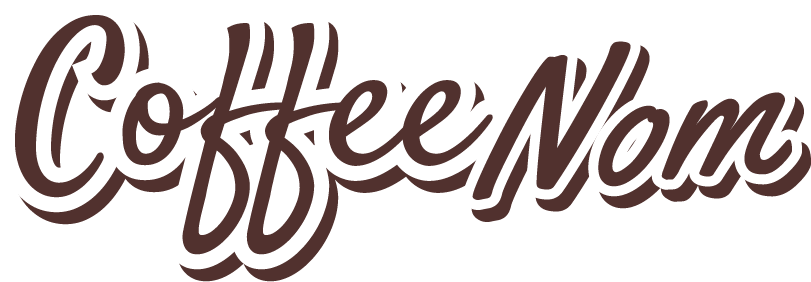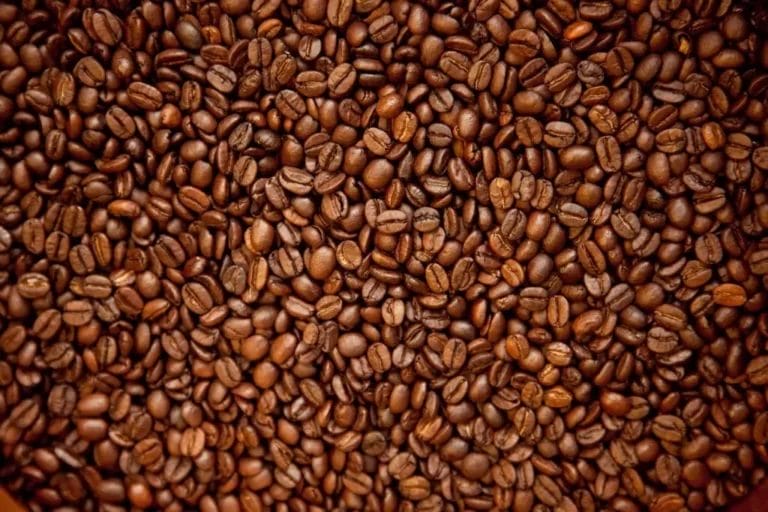You must be one of the coffee lovers whose morning doesn’t start without a cup of coffee. What’s in the coffee that gives you a jolt of energy? Of course, it’s the caffeine! But do you know that there’s caffeine in coffee beans?
What type of bean or coffee drink contains the most caffeine? And, what’s the maximum caffeine intake you can have at once? Relax, grab a cup, and read through our article to find out.
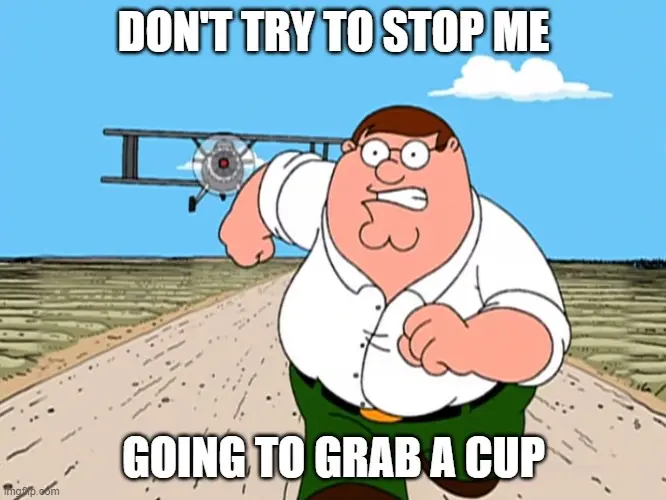
Caffeine Content in Coffee
Starting the day with caffeine is ideal for coffee drinkers. Until ‘a little’ becomes ‘a lot’. How do you get to know how much is too much? Well, counting is not as simple as you think. The caffeine content in coffee depends on quite a few factors.
Caffeine Amount Altering Factors
Bean type
- Arabica
- Robusta
Roast type
- Light roast
- Medium roast
- Dark roast
Grind size
- Finely ground
- Coarsely ground
Beverage type
- Brewed
- Instant
- Espresso
- Decaffeinated
Brewing Method
- Filtering
- French press
- Percolate
- Boiling
Here’s a detailed guide to making you understand the relationship between coffee and caffeine, and how much caffeine is in your coffee.
Types Of Beans- Robusta vs Arabica
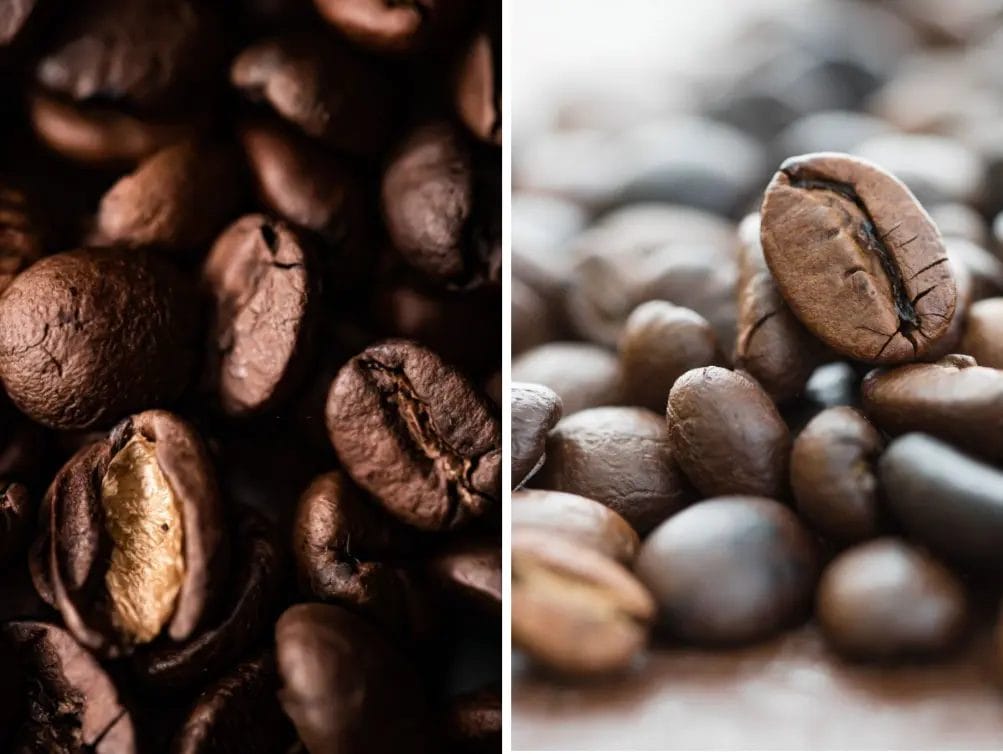
The species of coffee plants is one of the key determinants of difference in caffeine levels. Which is either Arabica coffee or Robusta coffee beans.
Arabica contains half the caffeine as Robusta beans. Unroasted Arabica coffee beans have around 1.2% of caffeine. And, a single bean of Arabica has about 1.9 mg of caffeine. Considering dry coffee, Arabica contains 34.1-38.5 g of caffeine per kg.
Unroasted Robusta beans contain about 2.2% of caffeine. Which is 2.2 g of caffeine per 100g of coffee. That makes a single bean of Robusta bean contain about 2.9 mg of caffeine. However, dry Robusta beans have 68.6-81.6 g of caffeine per kg.
A surprising determining factor of this difference is caffeine acting as an insect repellant. Arabica grows in highlands with fewer insects. Robusta needs to survive a more hostile environment. As a result, it requires more caffeine to fight pests.
You might want to drink more Robusta coffee to get more caffeine. But trust me, it’s not worth it. Though Robusta is used in blends and instant coffees, Arabica is sweeter, less bitter, and more flavorful.
Having fun Nomies? Check out our piece on is organic coffee worth it.
Type Of Roast- Dark vs Light
“Dark roast coffee beans contain a higher level of caffeine.” We’ve all heard this myth by now, right?
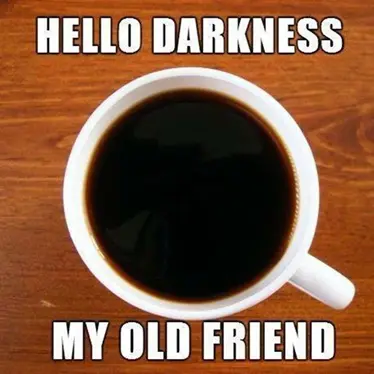
Though many can get confused by its strong flavor and bitter taste, these are the results of burning in a roaster. During the roasting process, the green coffee beans lose water, get enlarged, and their density falls. So a dark roasted coffee bean doesn’t contain as much caffeine as many think.
The light roast coffee types are denser compared to a darker roast. Whatsoever, the caffeine content remains the same when measured by weight. For making a cup of coffee, you use a measuring scoop. That’s when you need more dark roast beans to get the same levels of caffeine. So yes, lighter roasted coffee has more caffeine in it.
Confusion Over Caffeine and Bitterness
A common belief among most is that coffee tastes bitter. However, this is partially true.
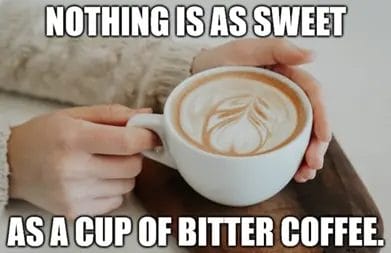
Bitterness is a natural attribute of caffeine. But the bitterness in coffee differs depending on the roast method. Roasting coffee beans for a really long time brings out the most bitterness. This is why most people take darker roasts of coffee with milk to counter it.
Another factor that affects bitterness is the bean type. Robusta beans contain more caffeine, which increases the natural bitterness of the coffee. Arabica beans contain less caffeine, making them a less bitter caffeine supply.
Grind Size- Coarse vs Fine
Believe it or not, grind size can affect the amounts of caffeine content present in the beans. Finely ground coffee beans have a greater surface area. More area allows you to extract more caffeine and flavors in the process of brewing.
Beverage Type
Let’s see how much caffeine is present in a cup of coffee. The beverage type and serving size play major roles here. The type of coffee blend, brands of coffee, and the amount of coffee are also important.
Brewed Coffee
Brewed coffee is prepared by filtering the coffee ground from hot water. In this process, you may use a French press, a filter, or a percolator. The caffeine content in brewed coffee ranges from 70-140 mg. That is on average 95 mg per Eight-Ounce cup.
Instant Coffee
A close competitor in caffeine content is Instant coffee. The caffeine level in a cup of instant coffee is about 30-90 mg.
Espresso
The caffeine content in espresso shots is so high, it is served as small 1-1.75oz shots. A shot of espresso contains about 63 milligrams of caffeine. A double shot of espresso can have up to 125 milligrams of caffeine.
Decaffeinated Coffee/Decaf
Decaffeinated coffee is not caffeine-free as you might think by its name.
The decaffeination process is usually soaking coffee beans in a solvent compound such as Ethyl acetate. Another decaffeination process uses water.
A brewed cup of decaf coffee contains roughly 3mg on average. In an Eight-Ounce cup, decaf contains around 0-7mg of coffee.
Learn about more coffee drinks from our piece on types of coffee drinks.
Brewing Method
Different brewing methods affect the amount of caffeine present in your coffee. Depending on the amount of caffeine you wish to intake, you can try out different brewing methods to find the one that suits your caffeine intake.
Bean types will also affect how effectively you can apply a certain brewing method. Use the proper method to maintain the balance between flavor and caffeine intake.
Filtered Coffee
Filter coffee or regular coffee is the most famous. The main reason is its subtle taste and simple process of making the coffee. Filtered coffee is also less acidic. A cup of filtered brewed coffee contains 115-175mg with an average of 145 mg of caffeine.
French Press Coffee
Many prefer French press coffee for a more refined taste, as the French press retains the flavor. French press coffee also has an increased purity, compared to filtered coffee. A cup of French press coffee contains 80-135mg with an average of 107.5mg caffeine.
Percolated Coffee
Percolated coffee has an average of 200mg of caffeine in a cup. The higher amount of caffeine in percolated coffee compared to filtered or French coffee is because of the longer brewing time. If not done properly, percolated coffee may taste bitter.
Boiled Coffee
Similar to percolated coffee, boiled coffee contains 200mg caffeine per cup on average. The caffeine amount in boiled coffee also depends on the amount of time taken to boil the coffee.
Cold Brew
Cold brews are made via steeping the coffee grounds at room temperature. This process can be done overnight or can take up to 12 hours. Cold brews are perfect for iced coffee. Cold brew coffee contains nearly the same amount of caffeine as percolated or boiled coffee.
Should You Worry About Caffeine Amount?
Caffeine is a psychostimulant that works as an energy boost. The caffeine in coffee isn’t too much to include in your daily routine. Maybe you can sit in a coffee shop and enjoy 1-3 cups of coffee per day. There’s nothing to worry about. But when you down a pot or more, you risk your health. Though coffee offers an overall health benefit, the effects of caffeine can be as lethal as they can be helpful.
Expert medical advice is to limit consumption of caffeine per day to 400 milligrams. And this restriction applies to other types of caffeinated drinks or coffee products such as
- Energy drinks
- Soft drinks
- Food items with coffee in the recipe
- Tea/ black tea.
- Dark chocolate.
Risks of caffeine include negative side effects like frequent urination, headache, insomnia, high blood pressure, and fast heart rate. Having even higher levels of caffeine is associated with adverse effects. It may produce anxiety, restlessness, sleep disruption, and heart palpitation.
Caffeine consumption effects vary widely among different people. The genetic differences in people alter caffeine metabolism. Some can be sensitive to much lower quantities while others are unaffected.
Had fun reading? You’ll love to read our piece on truth about vegan coffee.
FAQs
The caffeine content in a drip-brewed coffee ranges from 70-140 mg per cup. That’s on average 95 mg if we consider the cup to be 8 fl oz.
Unroasted arabica coffee beans have around 1.2% of caffeine. And, a single bean of arabica has about 1.9 mg of caffeine. Unroasted Robusta contains about 2.2% of caffeine.
The finer the grounds, the higher the caffeine.
400 milligrams a day, which is equivalent to 3-4 cups of coffee.
Drinking 3-4 cups of coffee daily decreases the risk for dementia, Alzheimer’s, and Parkinson’s diseases, cancer, type 2 diabetes, and other cardiovascular diseases.
